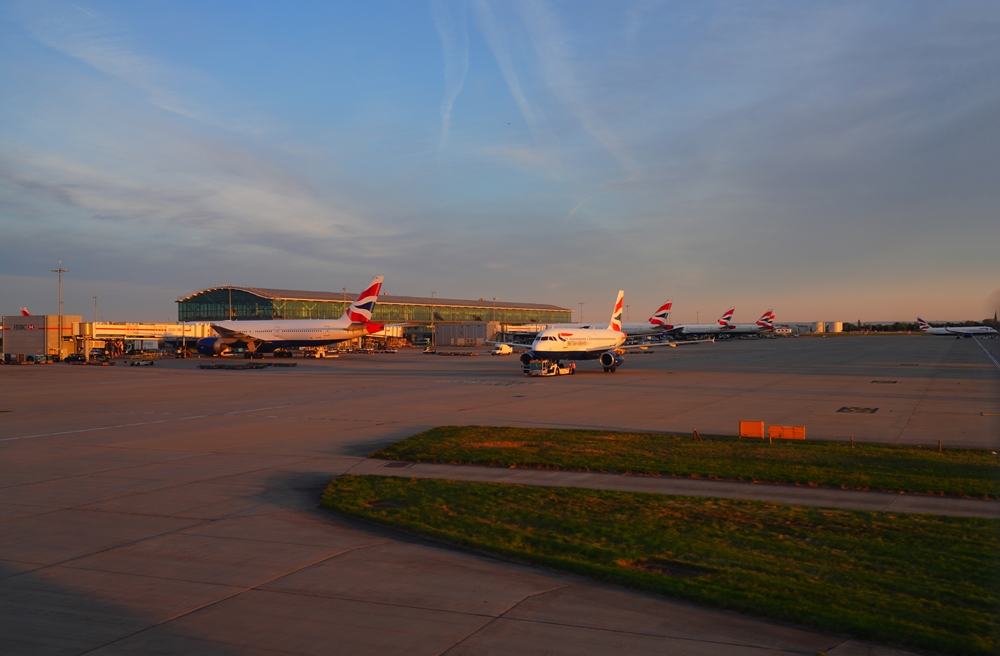Bold ambitions for space in the UK

Above:
UK and Ireland pictured from the International Space Station.
Courtesy Andre Kuipers / ESA
Making predictions for the year ahead can be a dangerous game. Yet I am confident in predicting that commercial spaceflight will continue to go from strength to strength in 2018. Where once putting something into space was the reserve of competing superpowers, the majority of space launches now involve commercial companies and last year saw five new space states emerge.
We have a world leading aerospace sector and, as part of the industrial strategy, we want to build on this strength while growing our share of the global space market. The cost and size of satellites is falling. And the data they provide is shaping our daily lives and the economy. The UK space industry is well placed to take advantage of this and is growing rapidly by around 8% each year, sustaining almost 40,000 jobs. I genuinely believe it is one of our greatest industrial opportunities.
It is sometimes easy to forget that we all have a piece of space in our pockets. The ubiquitous mobile phone uses satellites to give us directions and weather forecasts. There are opportunities across every sector of the economy to benefit from satellite data, from health and social care, to banking and finance.
That is why it is important that we inspire young people to think about how they can use space to benefit life on Earth. The SatelLife competition , launched today by the UK Space Agency, will do just that. Young people across the country can submit proposals that use data collected from space to benefit our economy, health or the environment. The best entries will receive a cash prize and support to develop their ideas further with space industry experts.
Last year’s winners give a sense of what’s possible. Ideas included using GPS trackers in fitness devices to help increase survival rates of heart attacks, to an app that warns people of impending natural disasters. The overall winner came up with an app to provide information on coastal flood risks and went on to meet Tim Peake, who has inspired an incredible number of children to look to the stars. Who knows what this year’s entrants could go on to achieve one day?
There are some exciting things on the horizon. Our Industrial Strategy provided up to £50 million to enable satellite launch services to take place from the UK for the first time ever. We’re putting in place new laws to make this possible and continue to work with the industry to establish the UK as a world leading destination for space launch. But this is not just about rockets and spaceports – this could also create opportunities up and down the supply chain in satellite technology, aerospace, transport, tourism and beyond.
Science and Innovation are key to industrial strategy. The UK showed its expertise in space science and exploration last year with the end of the Cassini mission – which plunged into Saturn’s atmosphere with an instrument built in the UK sending data back to Earth. Our commitment to reach 2.4% of GDP investment in research and development by 2027 will benefit further ground-breaking scientific missions, as will our status as a leading member of the European Space Agency – a separate entity to the EU.
We have innovative home-grown companies like Reaction Engines and SSTL that are revolutionising how we think about space. Airbus built the Sentinel5P satellite in Stevenage and it’s now sending some of the most detailed images of air quality back to Earth. Our International Partnership Programme is a showcase of British innovation in space which tackles some of the toughest challenges facing developing countries. We are also developing world-class facilities including the National Space Propulsion Facility in Westcott and the National Satellite Test Facility in Harwell, as well as business incubators in 22 locations to support start-ups hoping to be the next big thing in space.
The government and the UK space sector have bold ambitions for the coming years which can only be realised with new ideas, inspiration and an entrepreneurial spirit. And where better to find these than in the minds of young people across Britain.
For more information on the SatelLife Challenge (competition closing date 25th February 2018), click here
To register for the free networking event being organised by the UK Space Agency - connecting businesses in the space applications sector, investors and funding bodies - at the BEIS Conference Centre, 1 Victoria Street, London, 12pm – 6pm on Thursday 8th February 2018, click here












